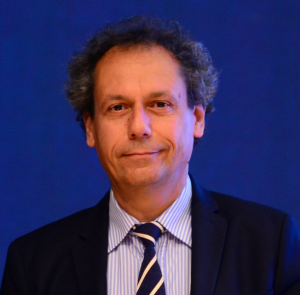President’s Welcome

Philippe Dagaut, President, The Combustion Institute, Research Director at CNRS, Director of ICARE Orleans, France, and Director of the Excellence Center Labex CAPRYSSES, France
Welcome to The Combustion Institute website. We hope it provides you a direct route to find the information you need. CI is an international, non-profit, educational and scientific society founded in 1954. In our mission to promote and disseminate research activities in all areas of combustion science, CI directs the publication of two scientific journals (Combustion and Flame, Proceedings of the Combustion Institute) and oversees the organization of technical meetings around the world. Our 35 sections are based in Europe, Asia, Australia and the Americas, with a total membership that exceeds 6,000 combustion scientists and engineers.
Members may refer to the events calendar to find information about upcoming meetings and other ways to network with colleagues. Visitors interested in announcements, new scientific breakthroughs, and the benefits of combustion research should read the news blog. If you require information that cannot be found on this website, please contact us with your specific needs.
Combustion research continues to benefit society in ways we may not often consider. For example, flames are used to create many types of nanoparticles. Some of those particulates are used in modern medical technologies that are used to diagnose illnesses. Other flame-generated nanoparticles are used as critical additives to computer chips and everyday household items. Combustion research that has led to new types of nanoparticles was discussed by Prof. Pratsinis of ETH Zürich, Switzerland, at the 36th International Symposium on Combustion in Seoul, Korea.
We all have benefited from the significant decrease in automobile pollutant levels over the past decades, in part due to advances in combustion research. Nitric oxide emissions from automobiles, which cause smog, have decreased by a factor of 45 since 1975. Individuals usually can no longer see (or smell) soot or aromatic emissions from busses and airplanes, which is attributable, in part, to advancements in combustion research.
Another exciting area of combustion science is the development of new energy sources that produce a low carbon footprint. At one of our recent meetings, Prof. Derek Dunn-Rankin, University of California, Irvine, United States, discussed the enormous amount of clean-burning natural gas that is trapped within methane hydrate under the ocean. Researchers are currently exploring options for extracting energy from this resource.
Within our international community some combustion scientists are developing ways to generate electricity from carbon-free fuels such as hydrogen, or from fuels with a low carbon content such as syngas. Perhaps someday all of the cars in the world’s major cities will run on electricity provided by remote power generators that utilize clean-burning fuels. Other members of our institute are working on the life-threatening problems associated with wildfires and urban fires. Computer models that predict fire spread are continuously advancing. That research is used in conjunction with sensors, weather information, and cellular technology to rapidly direct entire populations of people away from a fire’s path in various environments. Other advanced computations concern practical systems such as piston engines or airplanes engines. Much progress was made in the recent years concerning combustion instabilities in aero gas turbines, as presented by Dr. Thierry Poinsot at the 36th International Symposium on Combustion in Seoul, Korea. In many computer simulations, chemical kinetics plays an important role. Many of our colleagues are working in that area which involves theory, experiments, and modeling. For those who are interested, they can refer to several invited presentations at our symposia, e.g., ‘From theoretical reaction dynamics to chemical modeling of combustion’ by Dr. Stephen J. Klippenstein from Argonne National Laboratories at the 36th International Symposium on Combustion in Seoul, Korea, and Prof. Curran from NUI Galway, Ireland, ‘Developing Detailed Chemical Kinetic Mechanisms for Fuel Combustion’, at the 37th International Symposium on Combustion in Dublin, Ireland.
Our members know that combustion science provides them with an exciting and rewarding career. The issues we address are challenging and interdisciplinary, and lead to benefits for society.
‒Philippe Dagaut, President
